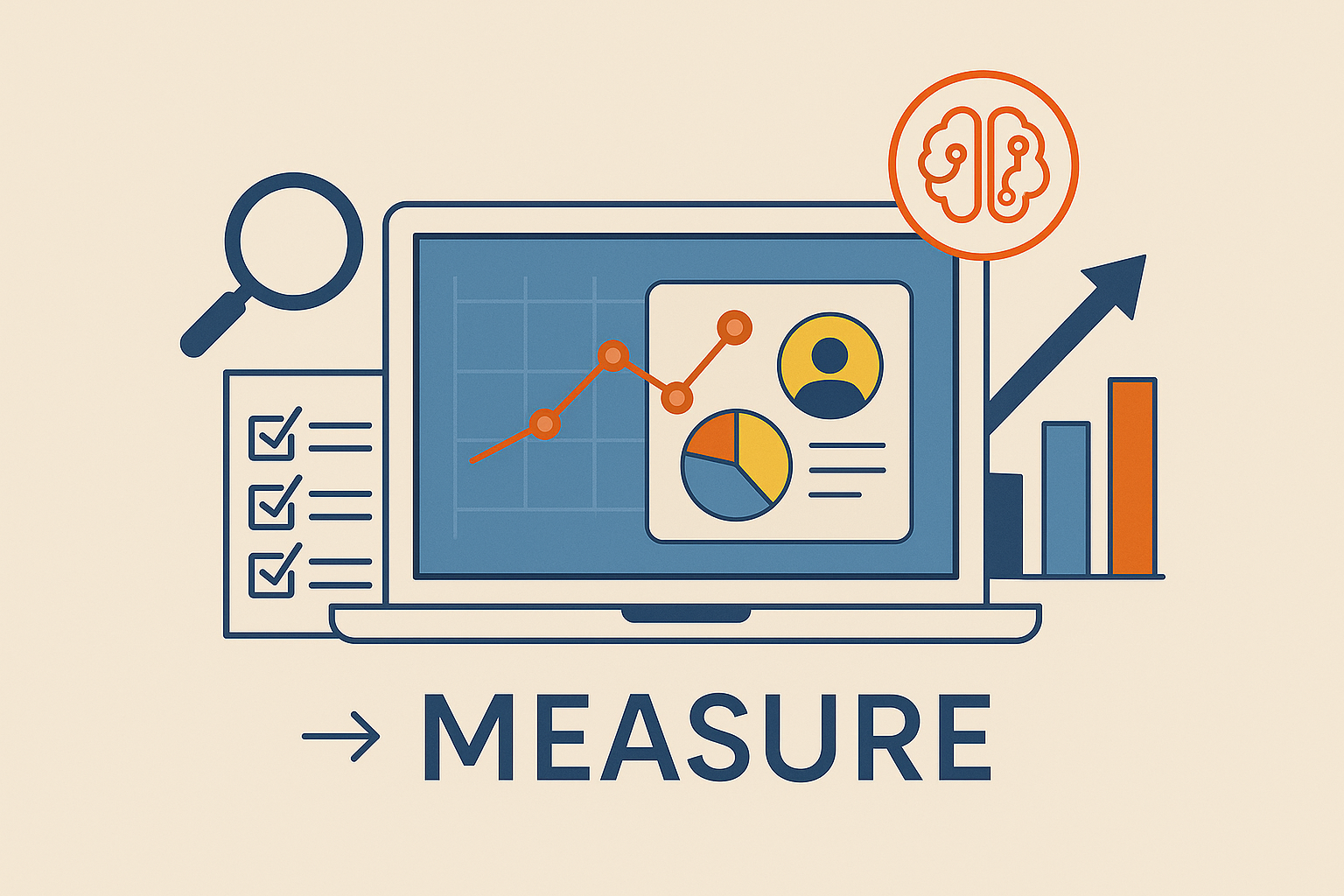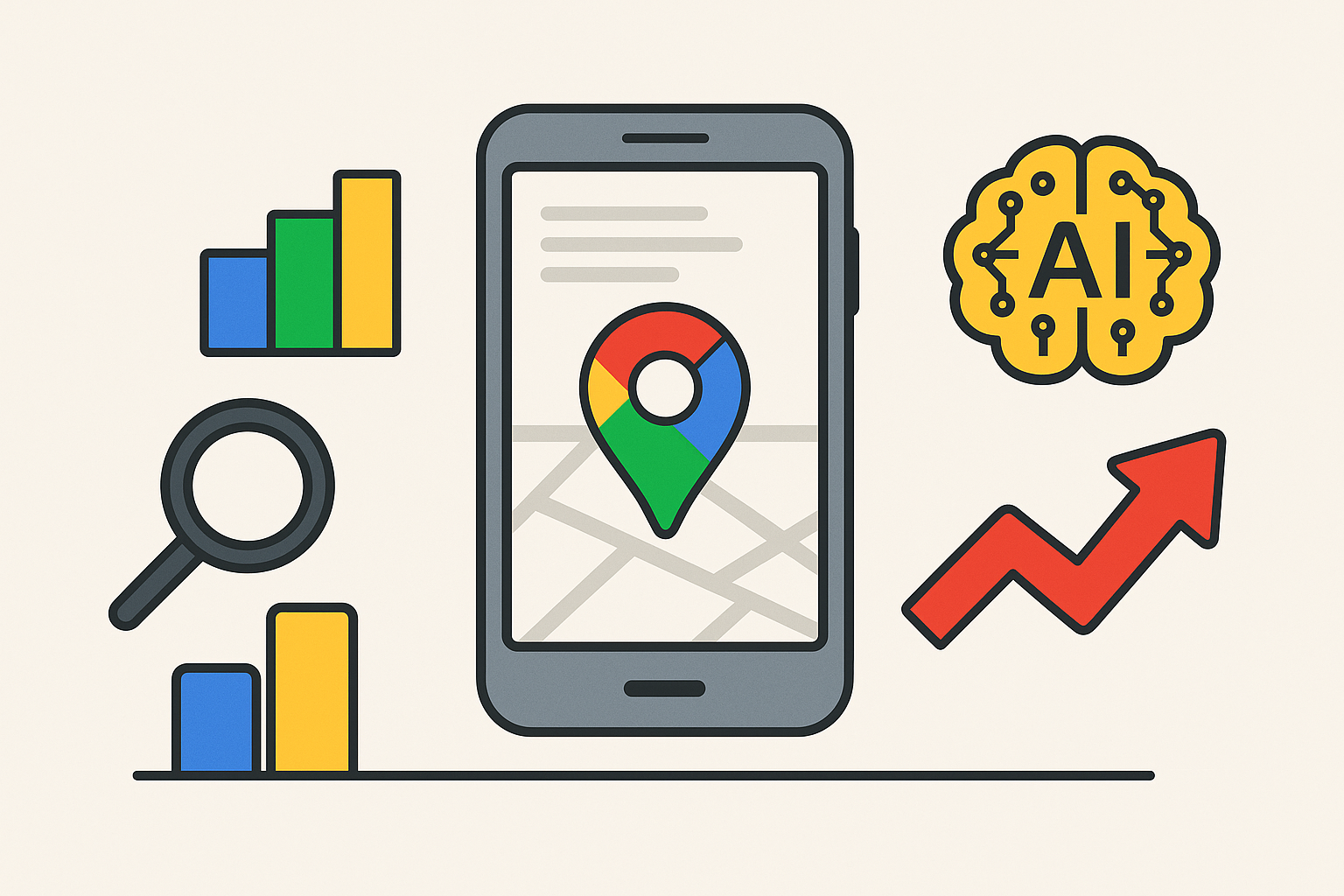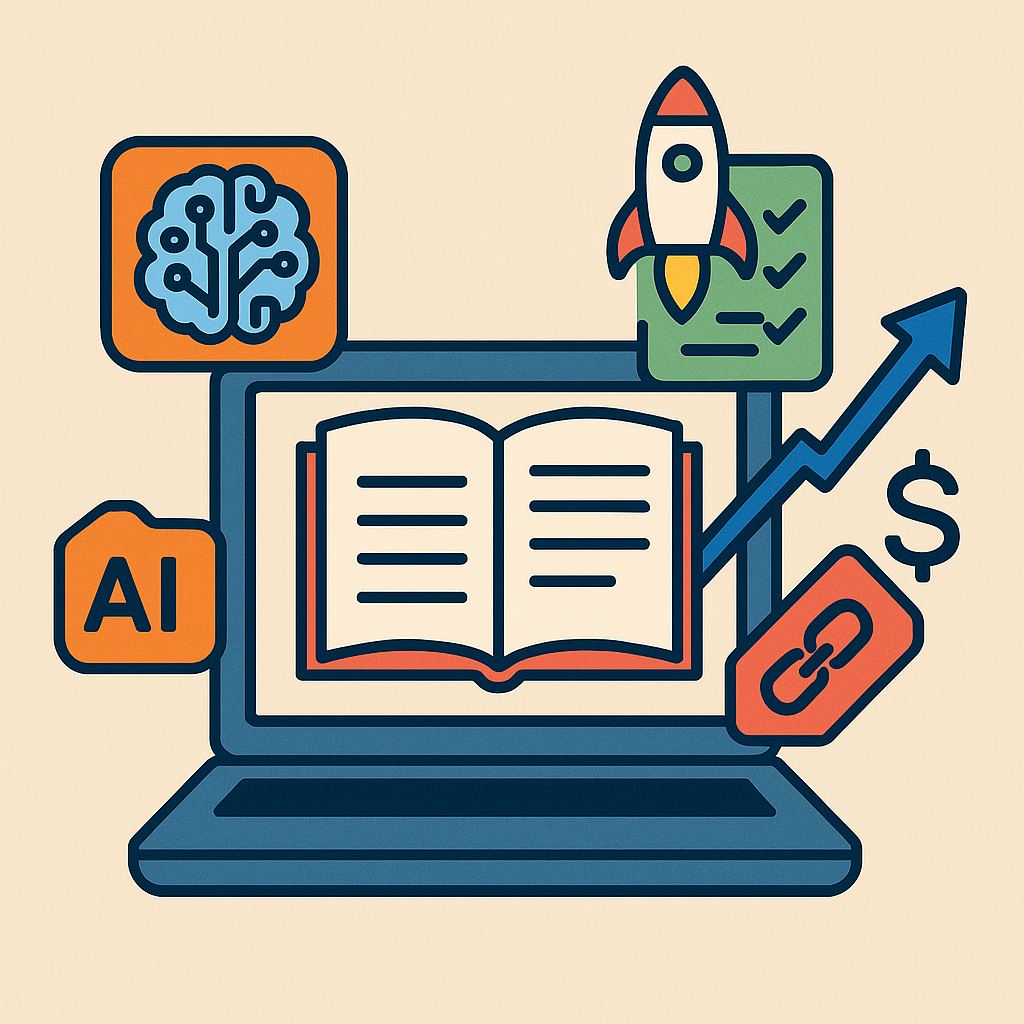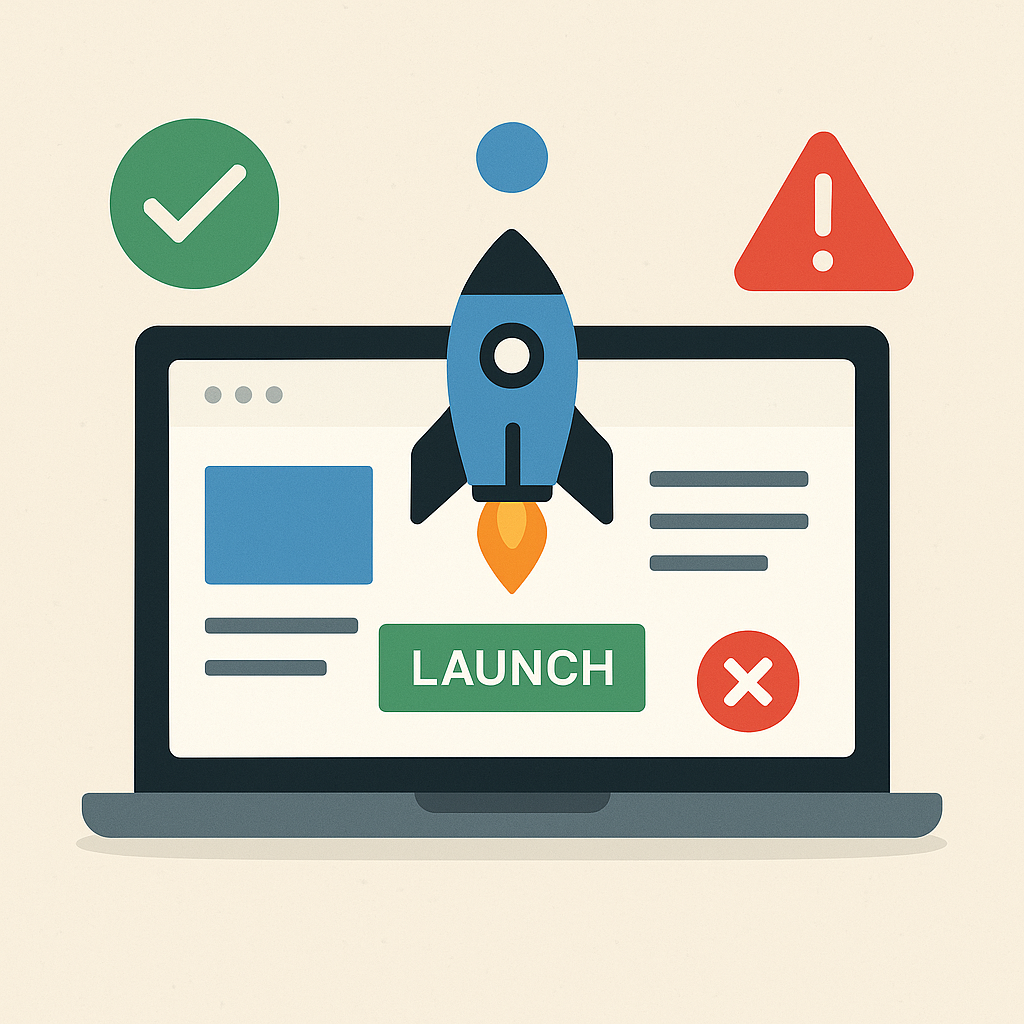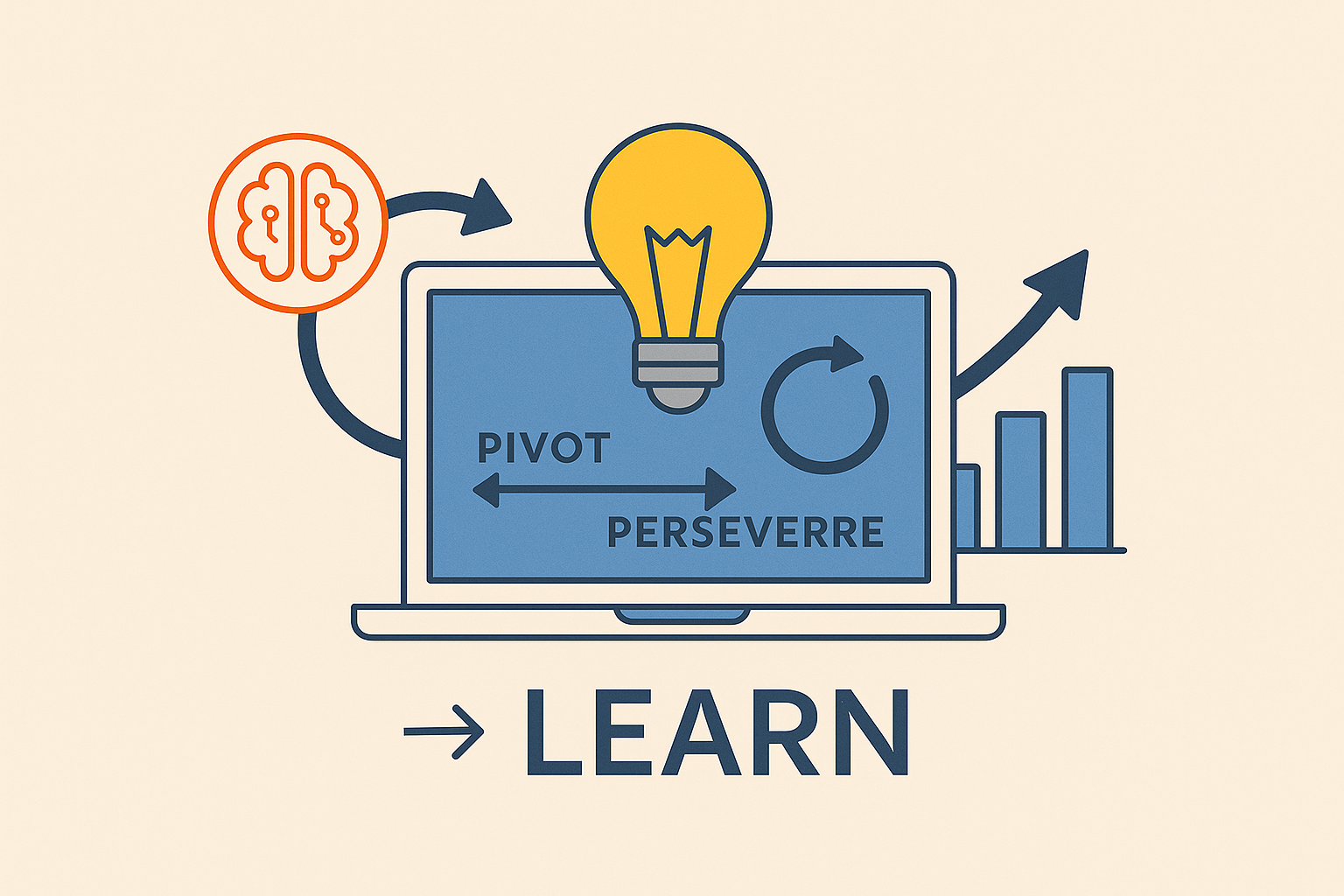In our last post, we explored how Artificial Intelligence can be your co-pilot in the "Build" phase of the Lean Startup cycle, helping you create your Minimum Viable Product (MVP) faster and smarter. But building an MVP – whether it’s a new service, a simple product, or a basic app prototype – is just the first step. Now comes the crucial "Measure" phase. How do you know if your brilliant idea is resonating? How do you gather meaningful data without getting lost in spreadsheets? As a solopreneur, your time is precious. The good news is, AI can also be a powerful assistant in helping you measure the impact of your experiments, making sense of the data so you can learn and iterate effectively.
Digging Deeper, Faster: AI for Analyzing Customer Feedback
You've launched your MVP and early users are providing feedback – through surveys, interviews, beta testing comments, or support inquiries. Manually sifting through this qualitative data can be overwhelming for one person. AI tools can accelerate this significantly:
Sentiment Analysis: Quickly gauge the overall feeling behind customer comments. Are people generally positive, negative, or neutral about your MVP?
Theme Identification: AI can analyze text feedback to identify recurring themes, common pain points, or frequently requested features, helping you see patterns you might otherwise miss.
Summarization: Get concise summaries of lengthy interview transcripts or large volumes of survey responses, allowing you to grasp key takeaways quickly.
This AI-assisted analysis helps you understand the "why" behind user reactions to your (potentially non-AI) MVP much more efficiently.
Illuminating User Behavior: AI in Analytics
Understanding how users interact with your MVP is vital. If your MVP involves a website, a landing page, or a simple app prototype, AI embedded within modern analytics platforms can provide deeper insights:
Automated Insights: Many analytics tools now use AI to automatically highlight significant changes in user behavior, unusual traffic patterns, or potential issues on your site or app that you might not have spotted.
Conversion Path Analysis: AI can help visualize and understand the typical paths users take towards a conversion goal (like signing up or making a purchase), identifying drop-off points in your MVP's funnel.
Natural Language Queries: Some platforms allow you to ask questions about your data in plain English (e.g., "Which traffic source had the highest engagement last week for my MVP page?"), and AI helps retrieve and present the answer.
Here, AI isn't part of your MVP, but it's helping you measure how users engage with what you've built.
Sharpening Your Tests: AI for A/B Test Analysis Support
A/B testing is a classic lean technique. Perhaps you're testing two different headlines for your new service's landing page, different pricing structures for your info-product MVP, or different feature descriptions. While AI might have helped you draft those variations (as discussed in our "Build" post), it can also assist in the "Measure" phase by:
Summarizing Performance: Once your A/B test has run its course, AI tools can help you quickly process the results from your testing platform, summarizing which version performed better on your key metrics (e.g., click-through rate, conversion rate, time on page).
Identifying Statistical Significance: Some advanced tools might even help interpret whether the differences you're seeing are statistically significant or just random chance, though always cross-verify this.
This helps you make data-backed decisions on which elements of your MVP are most effective.
AI as Your Guide to Actionable Metrics (Not Vanity!)
One of the biggest traps in the "Measure" phase is focusing on vanity metrics (like total page views or social media likes) instead of actionable metrics that truly reflect business health and inform decisions. AI can subtly guide you here:
Dashboarding Key Metrics: Many AI-powered business dashboards or analytics tools emphasize metrics that are inherently more actionable (e.g., conversion rates, customer lifetime value, churn rate).
Pattern Recognition for What Matters: By analyzing your business goals and the data you collect, AI might help highlight correlations between certain user actions and desired outcomes, helping you focus your measurement on what truly drives results for your specific MVP.
The goal is to use AI to help filter out the noise and concentrate on the metrics that will lead to validated learning.
Understanding Early Traction: AI for Initial Sales or Lead Data
If your MVP is designed to generate initial sales (e.g., a pre-order page, a limited service offering) or capture leads, AI can help you analyze this early financial or customer acquisition data:
Lead Source Analysis: Quickly see which marketing channels are bringing in the most promising leads for your new offering.
Early Sales Patterns: Identify any initial trends in who is buying or what aspects of your MVP are most popular.
Customer Segmentation: AI can help group your first batch of customers or leads based on shared characteristics, providing early insights into your most responsive audience segments for the MVP.
This helps you understand not just if your MVP is getting traction, but where and with whom.
Measure Smarter, Not Just More, with AI
As a solopreneur, you can't afford to waste time measuring things that don't matter or getting bogged down in complex data. AI, when used as an assistant, can help you streamline the "Measure" phase of your Lean Startup journey. It allows you to process customer feedback more efficiently, understand user behavior more deeply, analyze test results faster, and focus on the actionable metrics that truly count. This clarity and speed in measurement are vital for fueling the next, all-important stage: Learning.
Stay tuned for our final post in this series, where we'll explore how AI helps you Learn from your data and iterate your way to solopreneur success!
